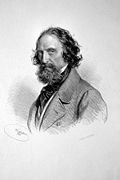Paul Traugott Meissner, Date of Birth, Place of Birth, Date of Death
TweetPaul Traugott Meissner
Austrian chemistAbout Paul Traugott Meissner
- Paul Traugott Meissner (23 March 1778, Mediasch, Transylvania – 9 July 1864) was an Austrian chemist. In 1797 he moved to Vienna, where he attended lectures given by Joseph Franz von Jacquin (1766-1839).
- Later, he continued his studies on a tour through Germany.
- He earned a degree as magister of pharmacy from the University of Pest, subsequently returning to Transylvania, where he took over management of a pharmacy in Kronstadt. Beginning in 1815 he served as an adjunct at the newly founded Polytechnic Institute in Vienna, where shortly afterwards, he became a professor of technical chemistry.
- In 1842 he was appointed director of the department of general chemistry.Best known for his research in the field of heating technology, he is credited with development of a hot-air central heating system.
- He conducted experiments with heating systems for steamships and railway carriages and also created a fuel-efficient cooking range.
- In 1820, Meissner's air heating system was tried out at a sugar refinery in Vienna.Described as a free thinker, Meissner was known for his controversial views that made adversaries out of contemporaries that included Vienna technologist Johann Joseph von Prechtl (1778-1854).
- German chemist Justus Liebig (1803-1873) specifically blamed Meissner for what he perceived was the plight of Austrian chemistry.
- Since 1910, the Meißnergasse in the Donaustadt district of Vienna has been named in his honor.
Read more at Wikipedia
See Also
- Famous People's Birthdays on 23 March, Romania
- Famous People's Birthdays in March, Romania
- Famous People's Birthdays on 23 March, Austria
- Famous People's Birthdays in March, Austria
- Famous pharmacist's Birthdays on 23 March, Romania
- Famous pharmacist's Birthdays in March, Romania
- Famous chemist's Birthdays on 23 March, Romania
- Famous chemist's Birthdays in March, Romania
- Famous university teacher's Birthdays on 23 March, Romania
- Famous university teacher's Birthdays in March, Romania
- Famous pharmacist's Birthdays on 23 March, Austria
- Famous pharmacist's Birthdays in March, Austria
- Famous chemist's Birthdays on 23 March, Austria
- Famous chemist's Birthdays in March, Austria
- Famous university teacher's Birthdays on 23 March, Austria
- Famous university teacher's Birthdays in March, Austria


 Date of Birth:
Date of Birth:  Place of Birth: Mediaș, Sibiu County, Romania
Place of Birth: Mediaș, Sibiu County, Romania
